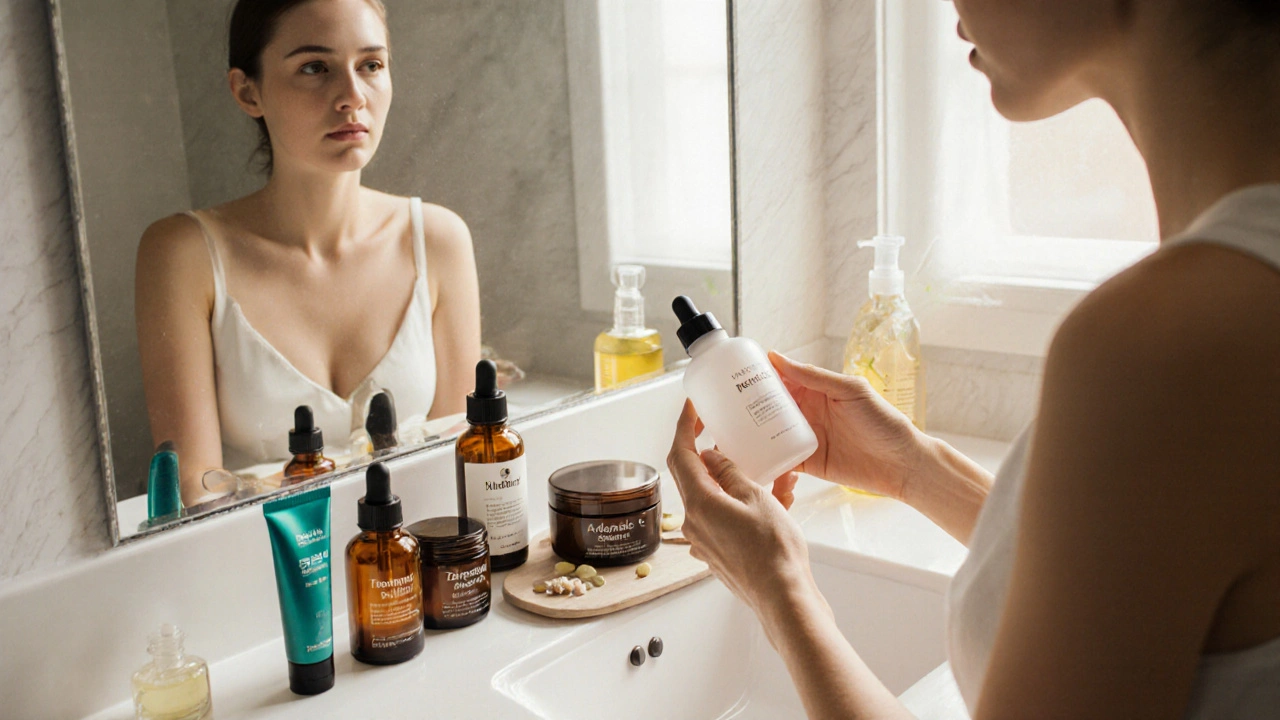Acne Retinoids: What They Are and Why They Matter
If you’ve ever searched for a solution to stubborn pimples, you’ve probably seen the word “retinoid” pop up. In simple terms, retinoids are vitamin A‑derived compounds that speed up skin cell turnover. Faster turnover means clogged pores get cleared sooner, which translates to fewer spots and smoother skin.
How Retinoids Work on Acne
When you apply a retinoid cream or gel, it tells the skin to shed old cells more quickly. This prevents dead cells from building up inside hair follicles – the main cause of comedones (whiteheads and blackheads). At the same time, retinoids reduce inflammation, so existing pimples calm down faster.
There are three main types you’ll encounter:
- Retinol: the mildest, over‑the‑counter option. Good for beginners.
- Adapalene: a bit stronger, found in products like Differin. Works well for moderate acne.
- Tretinoin, isotretinoin, and tazarotene: prescription‑only, potent formulas for severe cases.
Choosing the right strength depends on how your skin reacts and how bad the breakout is. Start low, then increase if you tolerate it.
Practical Tips for Using Acne Retinoids Safely
Retinoids can be a game‑changer, but they also come with a learning curve. Follow these steps to avoid irritation and get the best results:
- Start slow. Apply a pea‑sized amount every other night for the first two weeks.
- Use a gentle cleanser. Avoid scrubbing; a mild, sulfate‑free wash is enough.
- Moisturize before and after. A light, non‑comedogenic moisturizer helps lock in moisture and reduces peeling.
- Never skip sunscreen. Retinoids make skin more photosensitive, so a SPF 30+ mineral sunscreen is a must during the day.
- Watch for side effects. Redness, peeling, or a mild burning sensation are normal at first. If it gets severe, cut back to once a week or talk to your pharmacist.
Keep your routine simple: cleanser → retinoid → moisturizer → sunscreen (AM) or just moisturizer (PM). Adding other active ingredients like benzoyl peroxide or salicylic acid can be too harsh unless your dermatologist approves.
Remember, results don’t appear overnight. Most people notice a smoother texture after 4‑6 weeks, and a clear reduction in breakouts after 8‑12 weeks. Patience pays off.
If you’re pregnant, planning a pregnancy, or nursing, avoid oral isotretinoin and strong topical retinoids – they can harm a developing baby. Stick to milder options or consult a doctor for safer alternatives.
In a nutshell, acne retinoids are powerful tools that unclog pores, calm inflammation, and improve skin tone. Start low, stay consistent, protect with sunscreen, and you’ll likely see clearer skin without the drama.

Retin‑A 0.05% (Tretinoin) vs. Top Skin‑Care Alternatives
A detailed comparison of Retin‑A 0.05% (tretinoin) with common alternatives like adapalene, tazarotene, retinol, azelaic acid, and vitaminC, covering effectiveness, cost, side effects, and who should use each.
